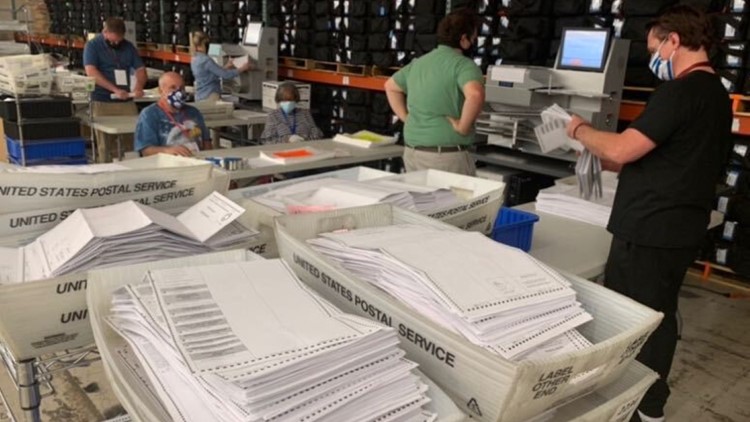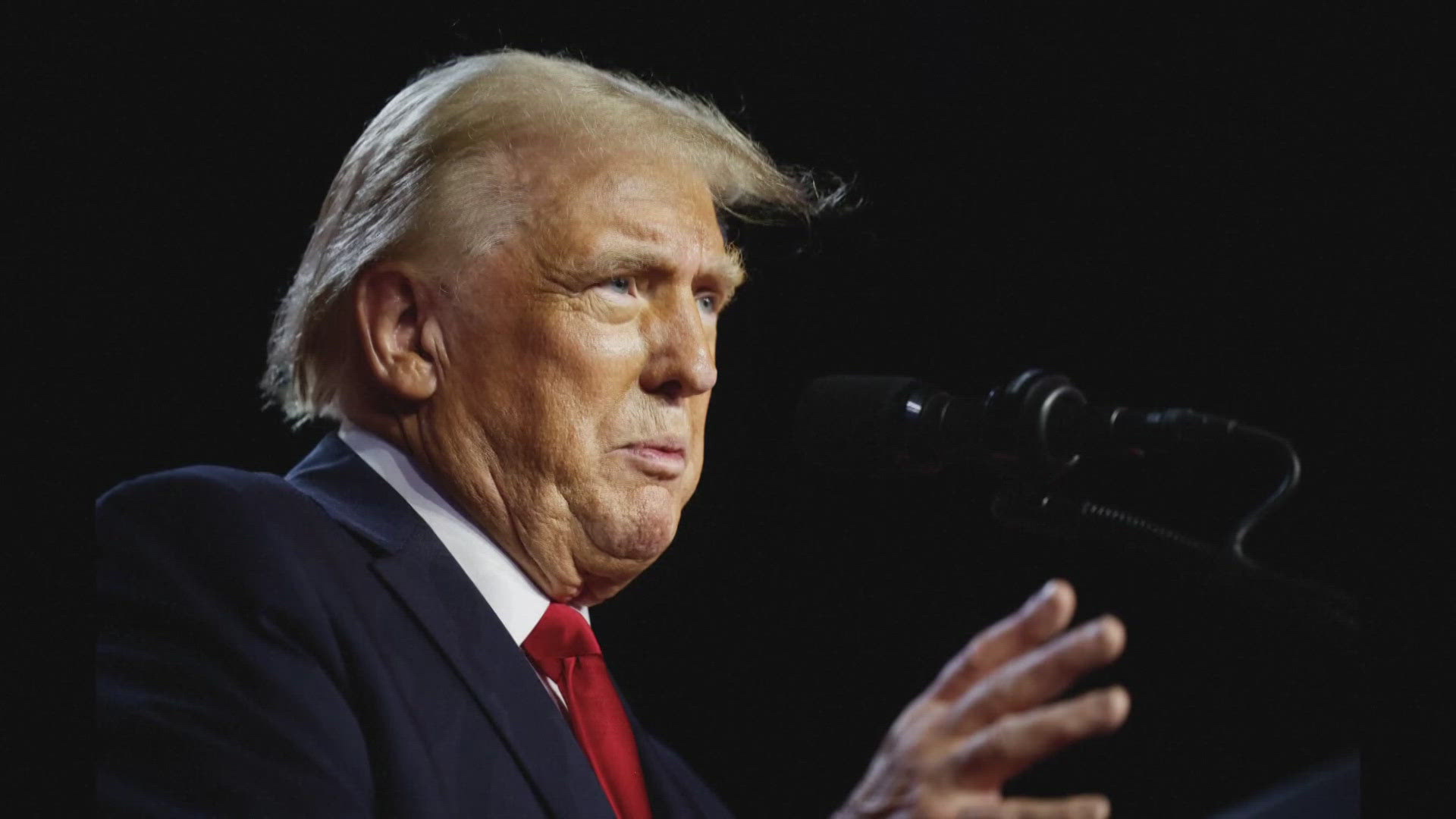INDIANAPOLIS — There has already been a lot of talk, and there will certainly be a lot more as we approach and then pass Election Day, on how long it could take to get the actual results.
Both sides have vowed to not concede, at least not immediately.
"Get rid of the ballots, and you'll have a very - you'll have a very peaceful - there won't be a transfer, frankly, there'll be a continuation," President Donald Trump said when asked by reporters.
Hillary Clinton urged former Vice President Joe Biden to not concede until every vote is counted.
“Joe Biden should not concede under any circumstances because I think this is going to drag out, and eventually I do believe he will win if we don't give an inch, and if we are as focused and relentless as the other side is,” Clinton said in an interview with her former communications director Jennifer Palmieri for Showtime's “The Circus.”
Biden has said he will ultimately accept the results and that Trump will have to as well.
“I will accept it, and he will, too. You know why?” Biden said. “Because once the winner is declared once all the ballots are counted, that’ll be the end of it.”
So how long could it take to get those final vote tallies? A lot of that will fall on the counting of absentee ballots, which because of the pandemic are at record levels this year.
Counting absentee ballots
To understand the time it will take to get a final tally, it will be important to look at the deadlines states have for returning absentee ballots.

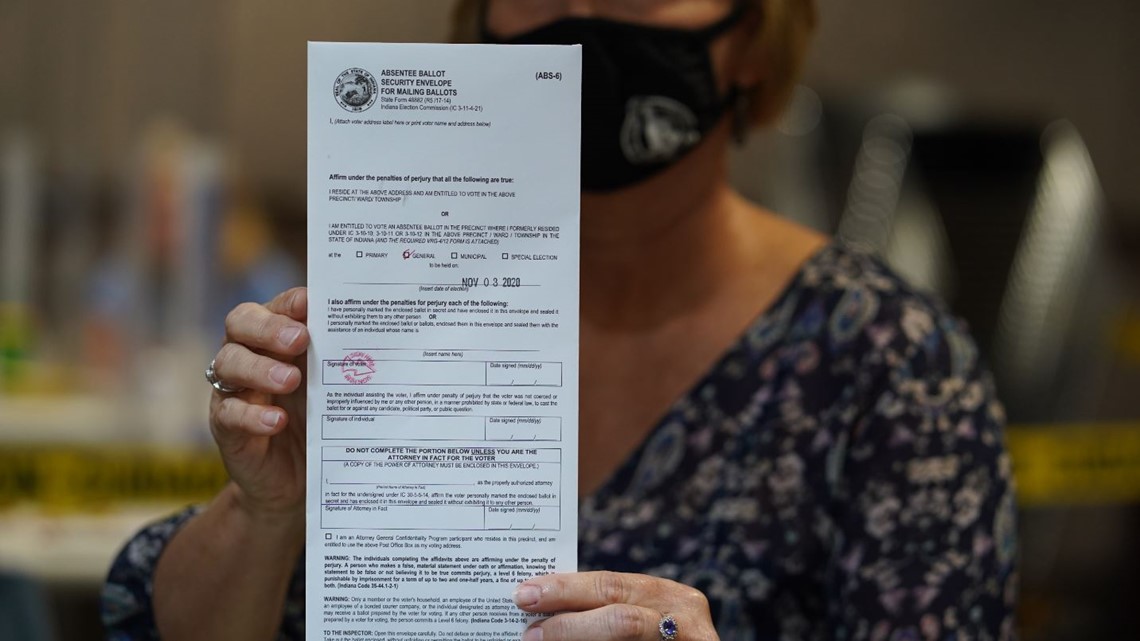
Twenty-seven states require absentee ballots to be returned on or before Election Day. Indiana is one of those, but on Oct. 28, even Gov. Eric Holcomb admitted that it could take a while to count them all.
"I'm encouraged by the turnout," Holcomb said. "They'll count all of them that qualify to be counted. And the point that I've made previous is that, the sooner the better. You can't sacrifice the quality of the job and you need to be thorough and it needs to be accurate, and that gives Hoosiers the confidence that their voice was not just expressed, but that it was taken into account."
Indiana is a red state that could see a delay, but with 23 states and Washington D.C. allowing absentee ballots to be returned days after Election Day, the results in those states could be even longer.
Why those delays matter
Historically, absentee ballots have tended to be more votes for Democrats. There's actually a term for it and how it could affect the result of an election: "the blue shift."
It is one of the reasons Democrats accuse Republicans of trying to limit, reject or discredit absentee ballots.
President Trump, who voted by mail-in absentee ballot, has often tried to discredit absentee ballots.
“MAIL-IN VOTING WILL LEAD TO MASSIVE FRAUD AND ABUSE,” Trump tweeted in the past. “ . . . WE CAN NEVER LET THIS TRAGEDY BEFALL OUR NATION.”
But that is simply not true.
A Washington Post analysis of three vote-by-mail states, with help from the nonprofit Electronic Registration Information Center (ERIC), found officials identified only 372 possible cases of double voting or voting on behalf of deceased people. That's 372 cases out of about 14.6 million votes cast, or 0.0025 percent.
So making sure absentee ballots are counted and giving time for them to be counted ensures that the decision of those voters is counted.
Swing states come into play
Where counting absentee ballots will really come in to play is in the swing states.
FiveThirtyEight lists swing states including Arizona, Florida, Georgia, Iowa, Michigan, Minnesota, Nevada, New Hampshire, North Carolina, Ohio, Pennsylvania, Texas, and Wisconsin.
Ballotpedia lists the same except Nevada.
Swing states that will require absentee ballots to be returned by Election Day include Arizona, Florida, Georgia, New Hampshire, and Wisconsin. Representatives in those states have said that it could take days to count all the absentee ballots.
The other swing states — including Iowa, Michigan, Nevada, North Carolina, Ohio, Pennsylvania, and Texas — accept absentee ballots in the days after Election Day, with Michigan accepting them as late as Nov. 17.

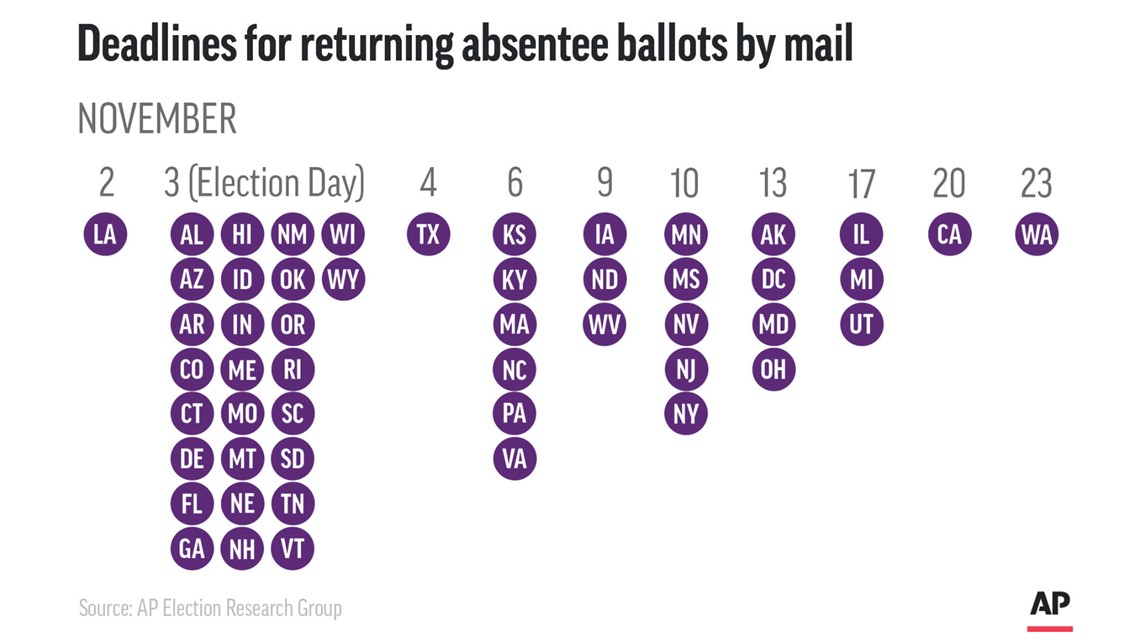
In some of the most critical battleground states, laws prevent the early processing of ballots. So on Nov. 3, Election Day, officials will have to run an in-person election while also working through the unprecedented number of mail-in votes. This dynamic is likely to delay results and heighten the potential for big shifts if in-person vote tallies are upended by the counting of mail-in ballots.
In a swing state like Pennsylvania, which starts counting returned ballots on Election Day, state officials have said that it could take until Friday to finish counting most ballots.
Pennsylvania is expected to see 3 million or more mail-in ballots — half of this year's total and a ten-fold increase from 2016. Registered Democrats are applying at a rate of nearly 3 to 1 over Republicans.
"The longer it takes for the election results to be known, the greater the risk that they're going to be questioned and second-guessed, and that we're going to be that national news story that we really don't want to be," said Lisa Schaefer, executive director of the County Commissioners Association of Pennsylvania.
Another delay will come as Pennsylvania is allowed to accept absentee ballots until Nov. 6. That extension came after an intense legal battle that went all the way to the U.S. Supreme Court. Republicans have filed another suit against the extension. Also, Pennsylvania doesn’t allow early processing of mail-in ballots, further complicating matters.
In Michigan, another battleground this fall, the Republican-controlled legislature has approved a measure to let clerks begin some ballot processing in cities or townships with at least 25,000 people the day before Election Day. Democrats had asked for at least three days of processing time and for no population-based limits.
"That one day can really make a difference," said the bill sponsor, Republican Sen. Ruth Johnson, a former secretary of state.

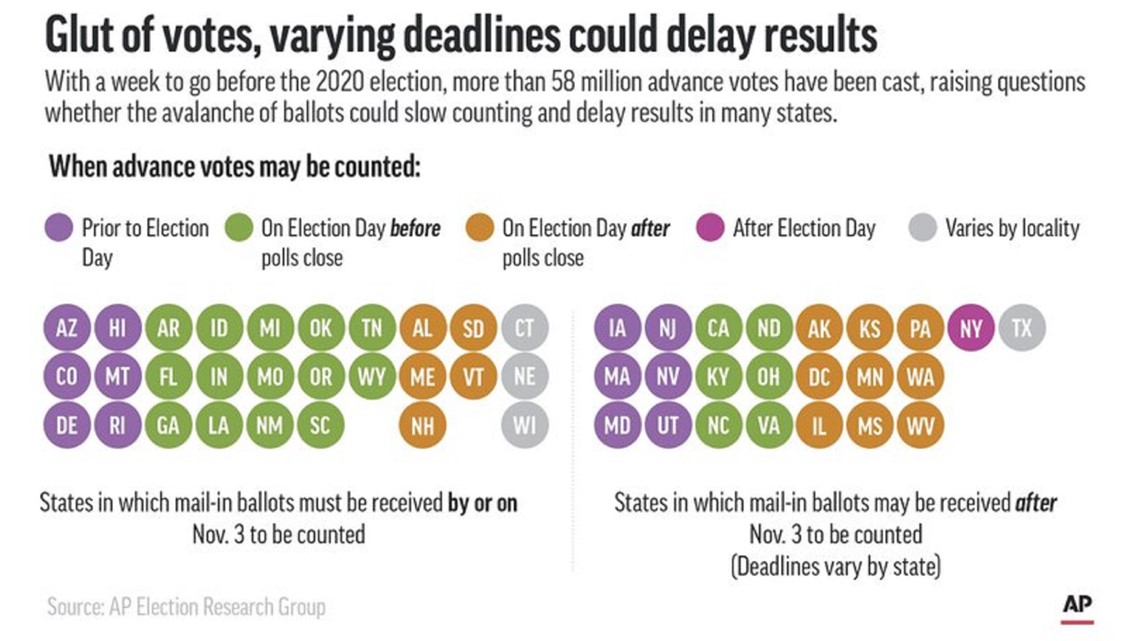
Johnson said allotting additional days would have been difficult because the new law will require volunteer election inspectors from both major political parties to observe the removal of ballots from their outer envelopes.
"You need to make sure that there's integrity," she said.
An appeals court struck down a 14-day ballot-counting extension for Michigan, leading the state’s top election official to urge voters to drop off their ballots in person rather than use the Postal Service.
Courts have also nixed similar extensions in Wisconsin and here in Indiana.
Past decisions
In the past, including the 2000 presidential election, courts have stepped in to end counting. In 2000, the U.S. Supreme Court ordered four counties in Florida to stop their recounts.
In 2018, Florida Sen. Rick Scott won by a little more than 10,000 votes after a recount. His opponent conceded while one county was still in the process of a recount.
Sen. Scott in September of this year proposed the Help America Vote Act of 2020, which would require mail-in ballots be counted within 24 hours of when voting closes on Election Day. That is something many states and counties around the nation aren't currently equipped to handle.
The wait
If neither side concedes a close election, and absentee ballots are given time to arrive and be counted, it could be setting up for a prolonged fight and ultimately a court decision.

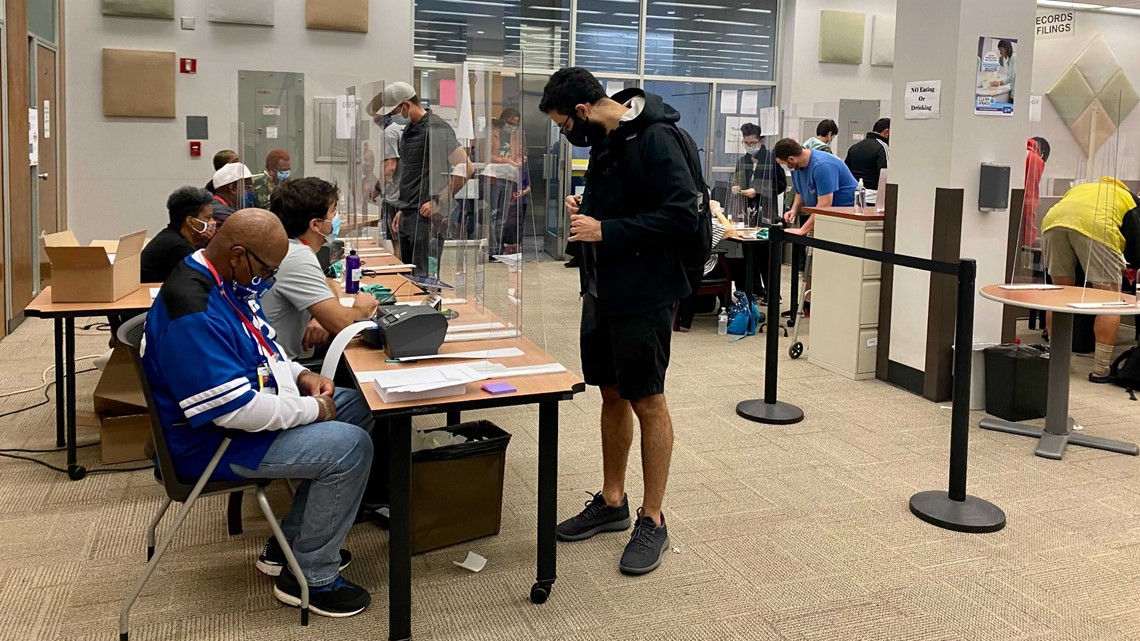
That's because the Electoral College delegations are set to vote on Dec. 14. It is usually a quick process when one candidate concedes, but in a highly contested election, delegations could be left without a clear direction for their state.
At the same, time legal battles, much like what happened in 2000, could wind up in the U.S. Supreme Court with a final decision coming weeks to months after the election.
Many pundits have voiced that the only way to avoid a prolonged battle would be for one candidate to earn a decisive win.


